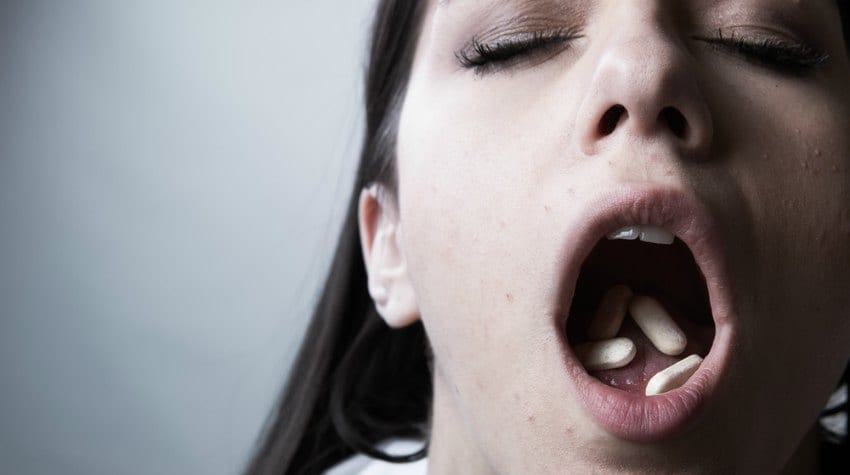

There are many concern that arise concerning steroid use among troubled youth. A rampant steroid abuse
×
Abuse
Abuse
/a·buse/
Abuse is defined as the improper usage or treatment of an entity, often to unfairly or improperly gain benefit. Abuse can come in many forms, such as physical or verbal maltreatment, injury, assault, violation, rape, unjust practices: crimes or other types of aggression.
Abuse is a negative and real threat that many people face. Child abuse is a problem that is continually occurring. The main types of child abuse are physical abuse, sexual abuse, and neglecting. When these types of abuse occur in a home, they often go unnoticed. The stress and fear of the abuse will usually cause the victim to remain quite about the problem.
It is a difficult problem to find out and assess, but there are solutions. It is important that people are aware of signs of abuse. They may include unexplained injuries, changes in behavior, fear of going home, changes in eating and sleeping and lack of personal care or hygiene.
among Major League Baseball players may be overshadowing the opening of the 2005 season, but scrutiny of the performance-boosting drugs’ impact on professional sports is far from over. The same congressional committee that in March turned the spotlight on steroids in baseball is now looking to probe the NFL, NBA and other sports leagues. Despite the attention on steroids and professional athletes, most medical experts are more concerned about the drugs’ impact on younger users. On Monday, the American Academy of Pediatrics issued a new policy statement condemning the use of steroids among adolescents
×
Adolescents
Adolescents
/ad.o.les.cent/
n.Noun
The Merriam-Webster dictionary defines the term adolescent as a young person living in the transitional period between the years of puberty and adulthood until they reach the age of full maturity.
Adolescents or teenagers, are living in a turbulent and trying time in a person’s lifetime. If ill prepared, teens may flounder or display negative behaviors at home. Adolescents are prone to negative behaviors such as, drug and alcohol abuse and other chemical dependencies, sexual misconduct or acting out, failing grades at school and disrespect towards authority. It is for this reason that parents of adolescents need to be particularly mindful when they reach their teenage years.
If a teenager is struggling during thus time of adolescence it, is crucial for parents to seek the right care for their son or daughter. During this time, people are typically more susceptible to negative behaviors and dangerous habits.
and children. The doctors’ group called on parents and coaches to take a stand against performance-enhancing drugs and "win-at-all costs" thinking. Steroid use doubled among U.S. high-school students between 1991 and 2003, according to a May 2004 report by the Centers for Disease Control and Prevention. More than 6 percent, or as many as 1 million U.S. students, said they had taken steroids for at least one cycle (8-12 weeks of use). But along with pumped-up muscles and unshakable confidence, anabolic steroids can damage the heart and liver, stunt bone development and cause extreme mood swings, acne and weight gain, researchers say.
Anabolic steroids are synthetic substances related to testosterone, a male hormone that occurs naturally in the body. The drugs are legally used by medical doctors to help patients
×
Patients
A patient is a person who receives some type of treatment or medical care. The type of treatment or medical care a patient receives depends upon what type of ailments or conditions the individual patient is suffering from.
When pertaining to troubled adolescents, patients may be teens who struggle with ailments such as, personality and/or behavioral disorders, drug addictions or need some other type of treatment to regain their foothold in life.
The type of treatment programs that assist troubled teen patients are prevalent and come in many, different forms. These types of programs include but is not limited to, boarding schools for troubled teens, wilderness therapy, residential treatment, rehabs, group homes and transitional living programs.
Teens who are viewed as patients at their chosen program, are also treated or viewed as patients. Teens are given treatments, medication and rehabilitation much like patients at a hospital who medically require attention.
with muscle-wasting diseases such as AIDS. Although designated a controlled substance by the U.S. government in 1990, athletes and bodybuilders take steroids to increase muscle mass and strength. Because the effectiveness declines after continuous use, experienced athletes will inject or pop them for 8-12 weeks in patterns known as "cycles," allowing their bodies to rest for several months before beginning another round. New research suggests the drugs can cause a powerful psychological dependency and stopping them safely requires careful medical oversight. Withdrawal can lead to severe depression
×
Depression
Depression
/de·pres·sion/
Depression is defined as a mental condition characterized by feelings of severe despondency and dejection, typically also with feelings of inadequacy and guilt, often accompanied by lack of energy and disturbance of appetite and sleep.
Statistics has shown that diagnosis of depression is growing at a very dangerous rate. Globally, depression affects over 350 million people of all ages. Depression has been linked to other negative health outcomes, such as obesity, heart disease, and stroke. Compared to those not affected by depression those who face it are more likely to be unemployed and have a higher chance of divorce.
Most people that suffer from depression do not seek care or attention. Since this is a global issue, many efforts are made to help those who are suffering depression. It is important for those that face depression to find help so that they can overcome this plague that millions of people face.
lasting for months. During a recent House committee hearing on steroids, members heard about three young athletes who committed suicide shortly after quitting steroids. Withdrawal from high doses of steroids have been linked to suicidal thoughts and behavior, especially in adolescents. "What we worry about most is people getting so depressed that they become suicidal," says Dr. Kirk Brower, head of the University Of Michigan’s Chelsea Arbor Addiction
×
Addiction
The American Society of Addiction Medicine defines addiction as “Addiction is characterized by inability to consistently abstain, impairment in behavioral control, craving, diminished recognition of significant problems with one’s behaviors and interpersonal relationships, and a dysfunctional emotional response.”
Similar to other chronic diseases, addiction may involve cycles of relapse and a mental state of remission. If untreated, or serious attempts of recovery, the progression of addiction can easily result in dire, sometimes fatal, consequences.
Addiction can take many forms, from eating disorders to drug addiction and even gambling. Whatever the affliction, or choice of addiction, the teenage psyche and overall well being is at greater risk than that of a fully developed adult. Teens who don’t receive adequate rehabilitation for their addiction are almost certain to carry their addictive qualities into adulthood.
Parents of a teenage boy or girl suffering from addiction should seek viable treatment options immediately before the addiction progresses further.
Treatment Center in Detroit. "Adolescents are more vulnerable to [steroid withdrawal] because they’re already at a high risk for suicide." Suicide is the third leading cause of death among young people 15 to 24 years of age, according to U.S. government studies. It’s not just hyper-competitive jocks who abuse the substances. Doctors say a growing number of so-called "cyclers" are teens who suffer from muscle dysmorphia, a body image disorder similar to anorexia in women. Young men with the disorder obsessively focus on their muscular appearance and, seeing themselves as weak, inject or pop steroid pills to get the chiseled physiques they imagine will make them as popular as a character from "The O.C." How common steroid addiction is compared to the number of people who abuse the drugs is unclear. Because steroids aren’t considered as serious a problem as alcohol
×
Alcohol
al·co·hol
n.noun
a colorless volatile flammable liquid that is the intoxicating constituent of wine, beer, spirits, and other drinks, and is also used as an industrial solvent and as fuel.
When ingested, alcohol can be a deadly intoxicant. Teens and adults alike are more prone to make fateful and negative choices while drinking alcohol. A deadly intoxicant, alcohol has destroyed and ripped apart the lives of millions and yet, remains to be the drug of choice of troubled teens nationwide.
Teenage minds are not yet able to fully appreciate the dangers that coincide with drinking. When drunk, teenagers commit and act out heinous activities which they would normally never commit or act out. Teenage pregnancy, driving under the influence, fighting and other consequences are more likely to occur while teens drink.
Parents of teenage boys or girls who drink occasionally or struggle with the addiction of alcohol, need to seek immediate treatment for their son or daughter.
, tobacco or marijuana, long-term research on the substances is scant. While some doctors argue there is not strong evidence of steroid addiction among humans, others cite evidence that withdrawal symptoms can last up to six months or longer. In a small 1991 study at the University of Michigan, 84 percent of participants reported some kind of withdrawal effects from steroids, says Brower. "Common reaction was depressed mood, fatigue, trouble sleeping, decreased sex drive and the desire to take more steroids," he says. If your teen is addicted to steroids and is in need of therapy
×
Therapy
n.noun
ther·a·py
Therapy is a treatment intended to relieve or heal a disorder or disease. Therapy generally consists of two kinds: medical and psychotherapy. Medical therapies treat diseases of the human body such as cancer. Psychotherapies treat the mind of therapeutically or emotionally damaged individuals.
Different Types of Psychotherapy:
– Psychoanalytic Therapy
– Cognitive-Behavioral Therapy
– Group Therapy
– Behavior modification
– Biofeedback
– Collaborative therapy
– Family therapy
– Marriage counseling
– Music therapy
– Parent management training
– Relationship counseling
– Social Therapy
– Systemic therapy
– Therapeutic community
– Twelve-step programs
– Wilderness therapy
Therapy for troubled teens has become an increasingly popular opportunity for troubled adolescents today. Therapies are offered at many services for troubled teens such as, wilderness therapy programs, residential treatment programs and boarding schools for troubled youth. The most effective type of therapy greatly depends on the individual teen and what psychological and emotional issues the particular adolescent struggles with.
, Zion Educational Systems might be the answer. Zion Educational Systems (866-471-8579) is a Christian boarding school for troubled teens
×
Troubled Teens
Troubled Teens
/trou.bled/ /teens/
n. Noun
A troubled teen is defined as a person that is between the age 13-19 that is beset by problems or conflict.
Every Teenager faces problems that they must encounter in their life. Problems arise in every person’s life both big and small yet sometimes we allow even the most insignificant of problems affect our lives. Sometimes with teenagers they allow trials in their life greatly affect them in negative ways. Typically when a person (typically teenagers) face problems in their lives, the ability to cope with the problem does not exist. When teenagers turn to other things to cope with the feelings of the problems that they usually face things such as drugs and alcohol, pornography, criminal activity, etc.
It is important to find help for troubled teens as soon as possible. There are many different programs that are available to help troubled teens with the problems that they face each with a different approach and nature to the program.
with a drug and alcohol program. We are dedicated to helping troubled teens overcome their problems including drug or alcohol addiction.
Having a child diagnosed with a conduct disorder, ADHD, bipolar disorder or other serious psychological…
If you’ve come to the end of your rope with your teenager’s behavior, you might…
For parents with a troubled teen living at home, residential treatment can feel like a…
The teenage years can be hard, but what should you do if your violent teen…
The Dangers of Social Media and Its Impact on Troubled Youth Social media is one…
Parenting a Teen with Anxiety or Depression: A Guide with Tips for Parents Anxiety and…



